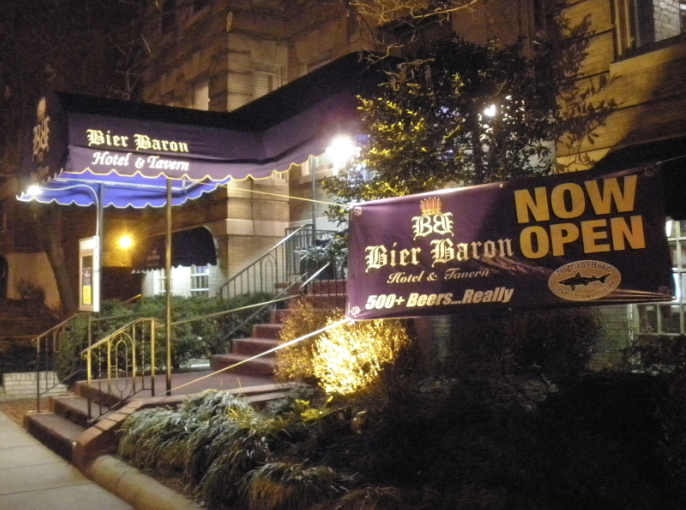- You are here:
- Home »
- Marketing
- » Boutique Hotels: Bringing the USP to Life

Boutique Hotels: Bringing the USP to Life
I recently had the opportunity to stay in a boutique hotel during a visit to Washington, DC— an experience that offered a perfect illustration of the Unique Selling Proposition (USP) in action.
The USP is one of the most central ideas in marketing. At its essence, it is about differentiation. What does your business do better or differently than anyone else? What does your blog offer that other, similar blogs don’t? What kind of EXPERIENCE do you offer that cannot be replicated, copied or commoditized?
From companies to artists to employees and independent contractors, no one is immune to the law of the USP. As far as marketers are concerned, the USP is as fundamental as the law of gravity. There’s no getting around it.
The hotel industry is one example where the concept of the USP is a little more transparent than others. Most people, even those who don’t know anything about marketing, understand that staying at a Motel 6 is not the same as staying at a Holiday Inn, and neither of those is the same as a J.W. Marriot. Each of these brands is distinct, and caters to different markets and budgets.
But corporate hotel brands with locations all over the world, even the nicer ones, are commoditized. Each location is quite similar, if not identical. Just like Starbucks or McDonalds, consistency is the core principle guiding this kind of operation. Your Holiday Inn experience will be pretty much the same whether it is in New York, London or Seoul.
Boutique hotels take the opposite approach. They are usually small, independently owned business with less than 100 rooms— much less, in many cases. Instead of casting a wide net and appealing to the general public, a boutique hotel does not try to appeal to everyone. Each one is different, and aims to offer a unique experience to guests.
People who stay at boutique hotels are not just looking for accommodations; they’re looking for an experience they can tell their friends and family about when they get home. If you’re just looking for a place to crash and are indifferent to your surroundings, you stay at generic corporate hotel. If you want unique surroundings and an experience that is impossible to duplicate elsewhere, you stay at a boutique hotel.
Case Study: The Baron Hotel, Washington, DC
The Baron Hotel is located near the Dupont Circle neighborhood of Washington, DC. By DC standards, this place was a fantastic deal— I managed to snag a room for $75 by booking my room the same day. Even if you were to book in advance, it’s still very inexpensive. The rooms were not exactly luxurious, but they were certainly comfortable.
This location is actually much more well known for The Bier Baron, the tavern located in the hotel’s ground floor. I had been to the tavern once before when I lived in DC, but I had never stayed at the hotel— in fact, I had forgotten there even was a hotel there until I needed to search for a room at the last minute. Indeed, like most boutique hotels, they don’t seem to put a lot effort into marketing themselves.
So how is it that they stay in business? There are many budget hotels in DC— what makes this this place any better or different?
The hotel and the bar itself have a unique rustic decorum. The hotel feels like a large, 19th-century house that was converted into a hotel. There’s even an old-fashioned elevator with a door that must be pulled shut by hand.
The tavern itself has a unique look and vibe; it feels like walking into to a medieval tavern or cellar in a German castle. The beer selection is unrivaled; over 50 beers on tap and an astounding 500 varieties available in bottles or cans. I saw brands I hadn’t tasted in years, and many others I’d never even heard of. The food is not bad either; a good selection of burgers and various hearty pub-fare— that’s what you come to a place like this for.
This was all very impressive, but I still felt like I wasn’t getting the whole picture. I decided to ask the doorman that exact question. His responses were quite revealing:
“When you walk in here,” he told me, “there is a relaxed, friendly atmosphere. People remember your name, ask you how you’re doing. It’s like that show Cheers. You just feel welcome right away and enjoy yourself.” A few times a week, I was also told, this friendly vibe would be punctuated by stand-up comedy or trivia nights.
Now, there are many other hotels and bars that offer each of those things, but how many can offer such a unique combination:
- Very low priced rooms
- Nearly 600 beers from around the world (hotel guests get a 15% discount on their bar tabs)
- Unique, rustic design
- Friendly, Cheers-like vibe
- All of this within inside one of the most fashionable (and pricey) neighborhoods in DC, and within walking distance of a metro station and major landmarks like the White House.
These 5 factors combined make up the Baron Hotel’s USP: A memorable experience with great food, great beers and reasonably comfortable surroundings at a super-low price. Not a bad combination in one of the most expensive cities in North America.
This place probably won’t appeal to foreign dignitaries or highly-paid lobbyists, but that’s not who the Baron Hotel is aiming for. They know their target market; budget conscious-travelers and locals who love beer, an unpretentious atmosphere, and enjoy being within walking distance from the action. Their USP naturally attracts the customers they’re looking for.
Marketing a boutique hotel is an exercise identifying USPs. Since no two are alike, it requires a marketer to really take note of the smaller pieces that make up the whole, and contribute to a guest experience that can’t be copied or commoditized. For your next trip, consider staying at a boutique hotel to get a first-hand lesson in differentiation, the most fundamental aspect of marketing.
About the Author Joe Guida
I'm a copywriter & content marketer based in Southern CT. When I'm not busy helping clients perfect their messaging and connect with their ideal customers, you can usually find me traveling abroad, training Brazilian Jiujitsu or drawing sophomoric cartoons in my sketch pad. Check out my services page to see how I can take care of your marketing needs, so you can get back to running your business.
